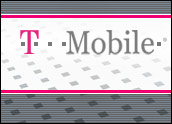
T-Mobile USA on Wednesday launched Mobile Money, a money management application for smartphones that is meant to be used in conjunction with a reloadable T-Mobile Visa Prepaid Card. This card offers reduced fees and free services for registered T-Mobile wireless customers.
There is no charge for activation, monthly maintenance, in-network ATM withdrawals, or for replacing lost or stolen cards. There are also no minimum balance requirements.
The service supports direct deposit for paychecks and the ability to deposit checks using smartphone cameras. Consumers can use it to make retail purchases, pay bills and withdraw cash from more than 42,000 ATMs nationwide.
T-Mobile clearly is addressing consumers’ disgust with high banking fees with this offer.
“Millions of Americans pay outrageous fees to check cashers, payday lenders and other predatory businesses — just for the right to use their own money,” said John Legere, president and chief executive officer of T-Mobile.
The company estimates that the typical household that currently uses a check casher to cash their paychecks could save about US$1,500 per year with Mobile Money by T-Mobile.
The Un-carrier Image
This offering is consistent with T-Mobile’s push to remake its image with consumers as a friendly carrier — one that doesn’t rook its customers with high fees or yearly contracts. Its so-called un-carrier initiative has included a number of popular measures, such as an unlimited Simple Choice service plan with no annual contract, its Jump! plan that allows consumers to make more frequent phone upgrades, unlimited data and texting around the world for Simple Choice and business customers, and 200 MB of free data every month for tablet customers.
It also offers interest-free financing for smartphone purchases. With that initiative alone, T-Mobile has facilitated billions of dollars in loans for customer phones, the company claims.
A Big Leap
Offering money management services is a stretch for the carrier, but one that it can handle, Comunicano CEO Andy Abramson told CRM Buyer.
It is also a very logical extension, given what it has done so far, he added.
“When you think how they are now offering ETF credit or payments, are willing to buy the customer’s old phone off them to put them into a new phone that can do more on their dramatically upgraded network, getting into the banking realm is a smart move,” Abramson said.
In general, the mobile ecosystem is becoming more friendly to payments, and consumers are becoming more accepting of the smartphone as an electronic wallet.
Look at how services such as Square are connected to smartphones, Abramson said. “Now the money can go right into your mobile bank account as that becomes your depository of funds.”
It is the perfect setup for the mobile entrepreneur such as the owner of a food truck, or for day laborers such as housekeepers, handymen, plumbers and electricians.
If T-Mobile is able to mainstream this mode of payment and cash management, there could be interesting consequences for the economy. Funds could move more quickly to smaller suppliers — what Abramson called a “swipe and settle” approach to business.
Also, it means a shorter payment cycle for T-Mobile, assuming its bills will be paid directly from these accounts. That could enhance its bottom line considerably, he pointed out.
“When you’re dealing with millions of dollars a day, the interest starts to add up,” Abramson said.
Appeal to Customers
The offering is going to appeal to customers who flat-out resent their banks, said David E. Johnson, CEO of Strategic Vision.
“By offering plans like the no-fee checking account, they are emphasizing their customer service approach, which we have seen in other initiatives,” he told CRM Buyer.
“Banking fees are one of the biggest complaints against banks,” Johnson noted. “By offering this, T-Mobile addresses a customer complaint — but even more importantly, it sets them apart from their competitors.”





















































